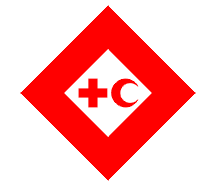This Conference was chaired by a woman[i], Prof Astrid N. Heiberg, of the Norwegian Red Cross who would later go on to be elected President of the International Federation.
When it took 9 years to convene the next Conference it was because bickering between the main protagonists in the Cold War, USA and the Soviet Union, about the participation of Palestinians in the meeting and the Conference that had been convoked for Budapest was cancelled at the last moment.
Among the more than twenty mentions of “women” – mostly as victims or in passing – one finds this remark by Ms I. V. Nze of the Congolese Red Cross, who had put herself forward as a candidate to the Standing Commission:
“As the idea of my candidacy was suggested by friends who believed in my ability, I should like to thank them most sincerely for this token of their regard for me. Looking at the list o f candidates, however, I note that there are 15, when only five are required, and that there are six women, including two for Africa. I therefore feel I ought to withdraw my candidacy out of solidarity for other candidates who might benefit from my votes. I also feel that, as you have just said, we should take account of geographical distribution. Lastly, I should like to wish every success to the five candidates whom we shall choose in this election[ii]”.
The Conference welcomed the Code of Conduct adopted earlier, and a paper annexed to the resolution to that effect, prepared jointly by ICRC and the International Federation, included the following paragraph:
“Thus, our provision of aid will reflect the degree of
suffering it seeks to alleviate. In implementing this
approach, we recognize the crucial role played by women in disaster prone
communities and will ensure that this role is supported, not diminished, by our
aid programmes. The implementation of such a universal, impartial and
independent policy, can only be effective if we and our partners have access to
the necessary resources to provide for such equitable relief, and have equal
access to all disaster victims. [iii]”
[i] Report of the twenty-sixth international Conference of the Red Cross and the Red Crescent : including the summary report of the 1995 Council of delegates and of the constitutive meeting of the XIIth session of the standing commission : Geneva, 1-7 December 1995; [Geneva] : [ICRC : Federation], [1996]; P 81; P 83/164 in the electronic version at https://library.icrc.org/library/docs/DIGITAL/CI_1995_RAPPORT_ENG.pdf
[ii] Report of the twenty-sixth international Conference of the Red Cross and the Red Crescent : including the summary report of the 1995 Council of delegates and of the constitutive meeting of the XIIth session of the standing commission : Geneva, 1-7 December 1995; [Geneva] : [ICRC : Federation], [1996]; P 99; P 101/164 in the electronic version at https://library.icrc.org/library/docs/DIGITAL/CI_1995_RAPPORT_ENG.pdf
[iii] Report of the twenty-sixth international Conference of the Red Cross and the Red Crescent : including the summary report of the 1995 Council of delegates and of the constitutive meeting of the XIIth session of the standing commission : Geneva, 1-7 December 1995; [Geneva] : [ICRC : Federation], [1996]; P 99; P 101/164 in the electronic version at https://library.icrc.org/library/docs/DIGITAL/CI_1995_RAPPORT_ENG.pdf
